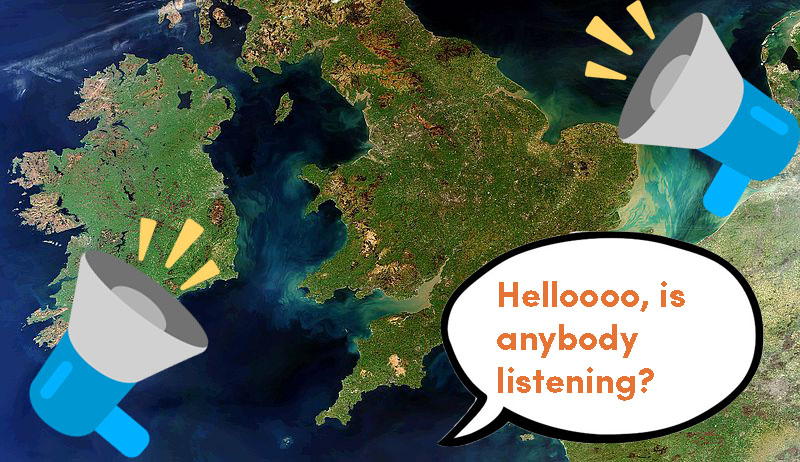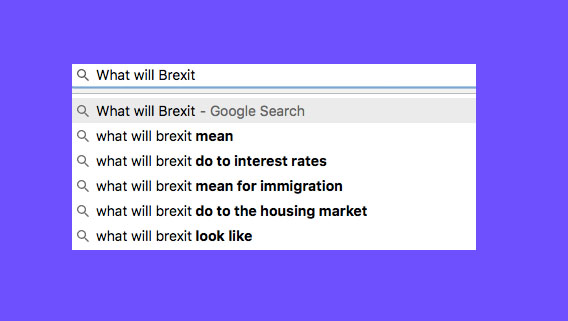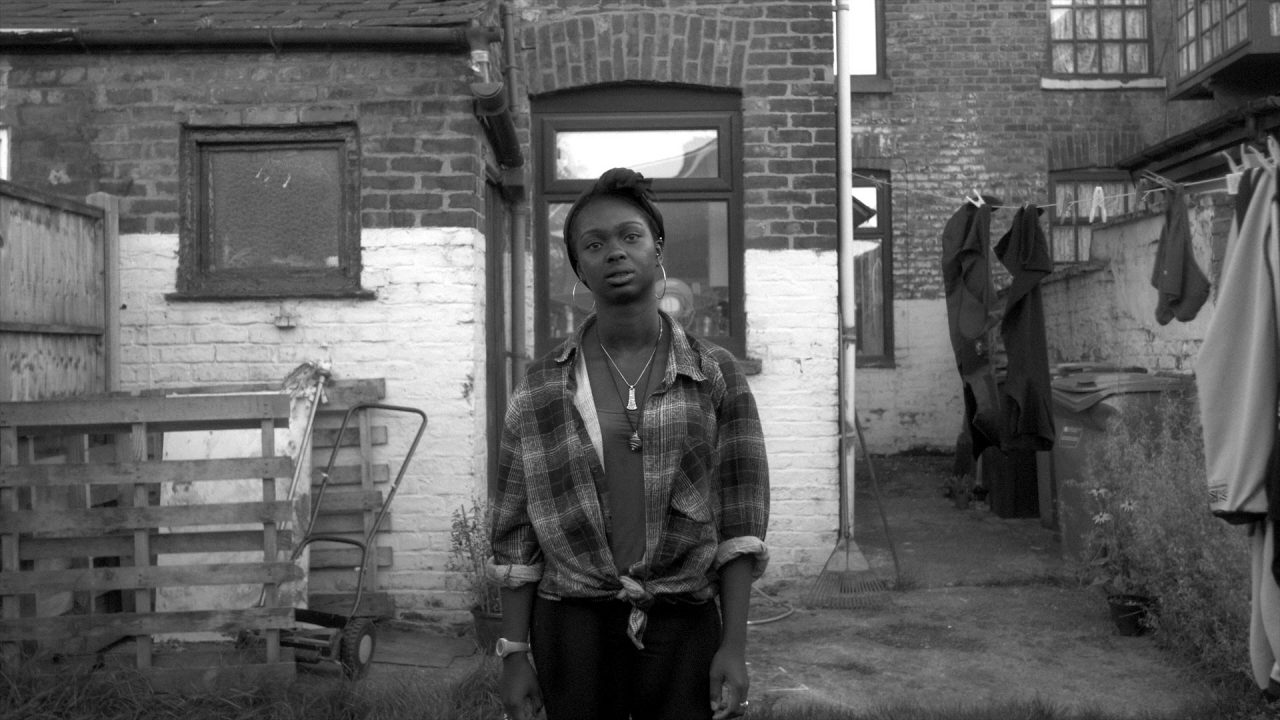
Young people have a lot to say about Brexit
This week was supposed to be Brexit crunch time. The EU set the UK a deadline to get somewhere (anywhere) with talks by 14 December, so they could start focusing on the big stuff.
And it kind of worked. After months of feeling like there was no end in sight, last week there was a break in the deadlock (why does it feel like we’re describing a war here). There was a vague agreement over the big sticking points. Issues like how much money the UK owed, and how the UK’s border with Ireland was going to work, had until then felt too absolutely bloody mahoosive to ever be resolved. Suddenly it was like finally the whole thing was getting somewhere.
And then it all changed again. The UK prime minister lost a vote with MPs and it could apparently derail the whole thing, mainly because her authority is kind of undermined. MPs will now have a chance to vote on the deal that the UK eventually reaches with the EU.
The thing is, newspapers were so preoccupied by the politics of it all that they seemed to forget to mention quite an important plus side to the whole thing. Which is that if MPs have a voice again, and you're living in the UK, you have a voice again too. So if you've got some strong opinions about all this, or just want to feel slightly better represented in the negotiations process, now's your chance to tell them.
But – in case you hadn't realised – Brexit is confusing. (When we say our bread and butter is demystifying economics, people practically get on their knees begging us to make some sort of sense of what's going on.) So we thought we'd do our best to find out what matters most to young people about the whole thing, break it down as clearly as we can, and help equip us with the tools we need to talk to our MPs about what we want them to say on our behalf in the halls of Westminster.
How do young people feel about Brexit? We want some clarity...
We spoke to young people from all over the UK to find out how they feel about Brexit. Not if they voted, how they voted, or why, but what worries them now about the future.
Some were angry with politicians. Some were worried about what would happen if Brexit never goes through. Pretty much everyone wanted a bit more clarity about what’s going on (which doesn't sound too different from where people were when we asked them the same question the day after the referendum a year and a half ago, just FYI).
… some answers
With an issue as all-encompassing as Brexit, it's understandable that different groups and communities have different priorities on what we need clarity on first. Campaign group Undivided, which is trying to make sure young people’s voices and demands are being heard, have polled young people all over the country to find out what their top priorities are.
“Even if you strongly believe Michael Gove was going to save the environment, the person coming after would have the same power to wreck the environment. ”
The environment came high up the list. A whopping 93 per cent of the people they spoke to said they want the UK to keep up the commitments to protecting the environment they’re bound by under EU law.
So is that possible? We asked two experts, and found that there is some stuff to be positive about. The current UK environment minister, Michael Gove, is really pro-green stuff. He wants the UK to have stronger environmental protections after it leaves the EU, not weaker ones. The problem, Dr Viviane Gravey, who researches how environmental policy is going to be affected by Brexit, is that by leaving the EU, the UK will be weakening its laws, and making them easier to cut if the next guy isn’t as convinced by the whole climate change thing. And given how much uncertainty there is about the extent to which foreign businesses will be keen to invest in the UK after Brexit, the UK won't necessarily be looking to make more long-haul, slightly riskier, more climate-friendly choices in the short-term: they'll be trying to keep things stable until we all get used to the new normal.
Read more about Brexit and the environment here
And then there’s the more straight-up jargon-y economics-y stuff, which you guys seem to be asking Google, cuz you're geeky like that. “What will Brexit do to interest rates?” is one of the most commonly asked questions on Google. And it’s easy to understand why. For a start, it feels like interest rates are never out of the newspapers. And then, even if you don’t have savings, or a mortgage, or any of the other things that mean you’re directly affected by interest rates, they can still make a difference to your life. Long story short: as long as people keep freaking out about what Brexit’s going to do to the economy, they’ll keep freaking out about interest rates. Find out why here.

Lastly, there's the issue that's probably one of the most inflammatory of the whole Brexit debate: immigration. A third of Leave voters said immigration was why they chose Brexit over Bremain. Many say it's out of economic reasoning: there aren't enough jobs to go round, and Britain should be giving British people jobs first. Yet most economists think immigration is good for an economy, and only really happens when an economy is doing well (otherwise people wouldn't have a reason to come.) The government says it wants to reduce net migration to 100,000. That's 235,000 less than we've got right now, so it's no easy feat: here's what we know so far about what will happen to Europeans in the UK and Brits in Europe for now, and any hints we've got about what the future looks like.
For more Brexit jargon-busting, take a look at our Instagram. We've also got a Brexit Gobbledygook dictionary we're updating as we go here, so check back whenever a new term boggles your mind and hopefully we'll have got there first!
...and a voice
Something sticks out from all our conversations with people: no matter how people actually voted, their worries and concerns are the same. It’s about feeling uncertain about what comes next, annoyed at all the rhetoric and mind-games in the communication of it all, and insecure as to whether governments will do justice to our concerns – whether that’s the environment, the economy, or immigration.
Though actually, it's not just that the politicians and economists doing the negotiating should be listening to us: we should probably be listening more to each other, too. The lines dividing Leave and Remain were pretty damning across age, class, race, education levels, geographical location... pretty much most factors. We clearly have lots to learn about each others' economic experiences, and would do well do talk about them more... perhaps before heading to the polls.
Brexitannia, the first feature length film about Brexit (called Brexitannia) shows, does a pretty incredible job at bringing together a group of people more diverse than most of our social circles will ever be. Here's our take on why it's an important watch.




